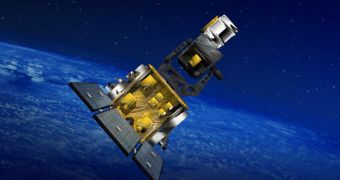Officials with the US Air Force (USAF) announced that they are delaying plans to host a competition for building the second Space Based Space Surveillance (SBSS) satellite.
The announcement was made on September 16. The decision is important because it place a very important satellite on hold, analysts say.
This April, the USAF launched the competition aimed at developing and building a new SBSS satellite, after the first one was produced, but not launched.
The first spacecraft in this series was developed by Seal Beach, California-based Boeing Space and Intelligence Systems (BSIS) and Boulder, Colorado-based Ball Aerospace & Technologies Corp.
It was designed specifically as an optical telescope, with the ability of checking various spots in Earth's geostationary orbit for satellites that were previously unaccounted for.
Basically, one could see it as a spy satellite for spy satellites. But constructing the observatory took longer than anyone expected, and the launch date was moved more than a year, given various technical issues that rose with the Minotaur 4 rocket.
This was the delivery system that was supposed to take the SBSS spacecraft into orbit. The take-off data is now scheduled for September 25.
But the USAF planned to construct a second satellite of the same generation regardless, featuring the exact same specifications.
The contract to build the satellite was to be awarded by early 2011, and the launch date was to be set for sometime in late 2014.
But, according to Air Force spokesman Joe Davidson, it would appear that the USAF will release the final request for proposals in early 2011, which means that about a year will go by before contractors are selected.
“The Air Force is committed to delivering capability on time, consistent with warfighter requirements and funding,” Davidson wrote to Space in an email.
“Our current plan is to release the final request for proposal no sooner than [the first quarter of 2011] and contract award will be timed appropriately following [its] release,” he said further.
Companies such as Lockheed Martin Space Systems, Northrop Grumman Aerospace Systems and Orbital Sciences Corp. are all potential prime contractors for the new satellites.

 14 DAY TRIAL //
14 DAY TRIAL //